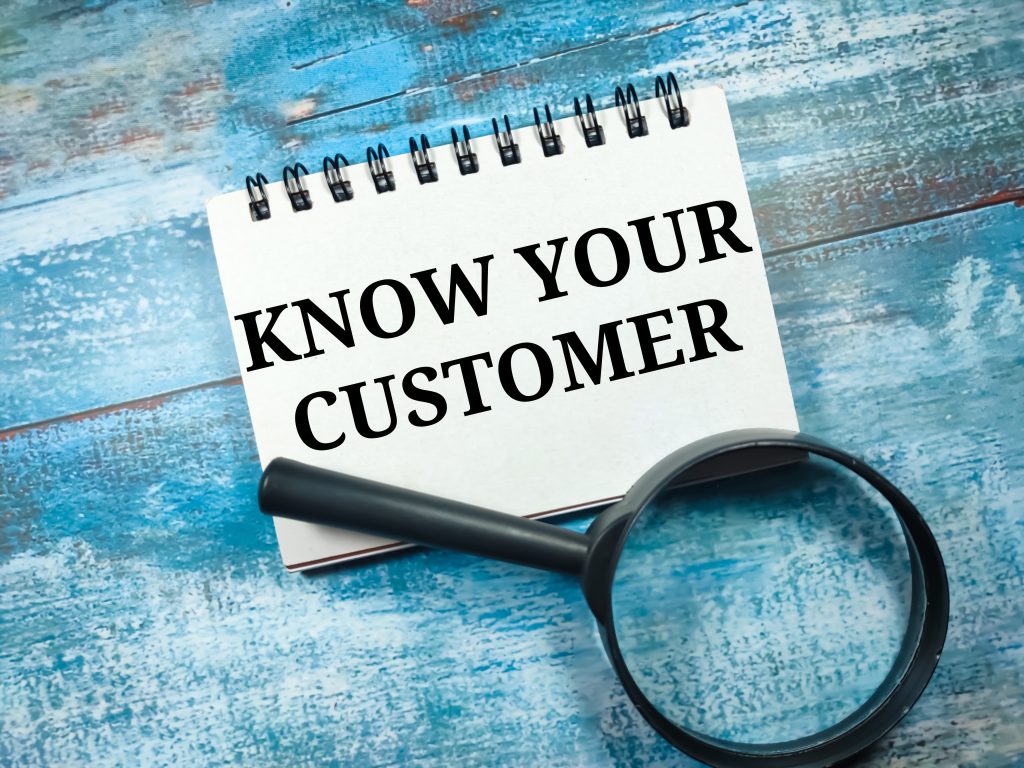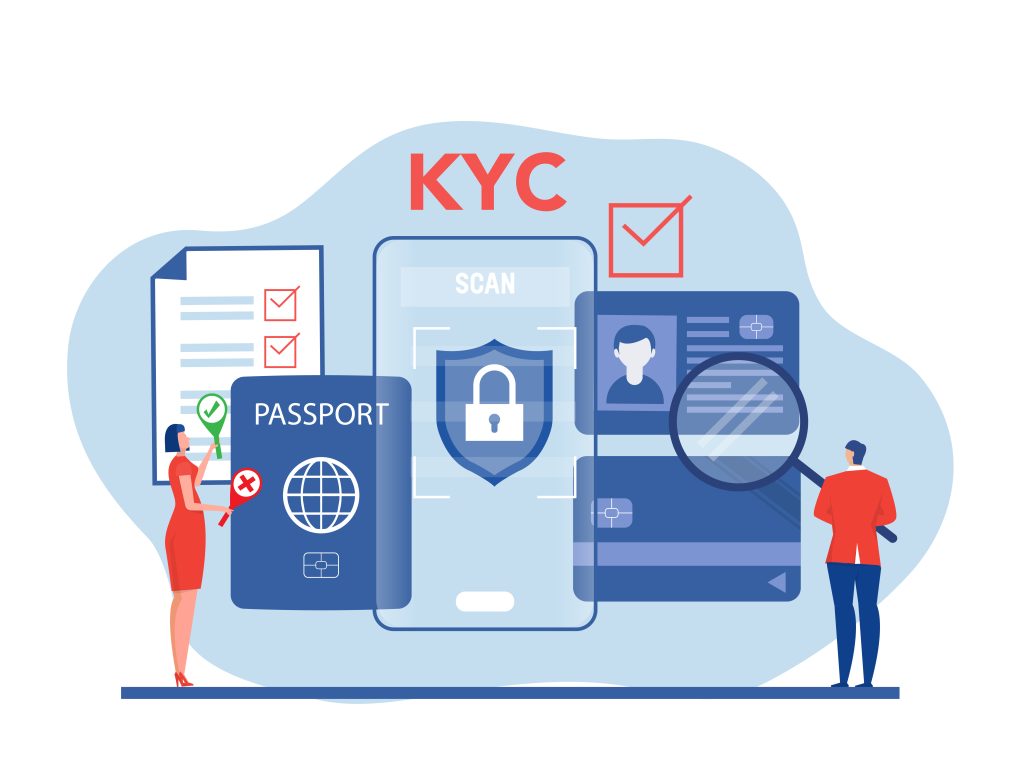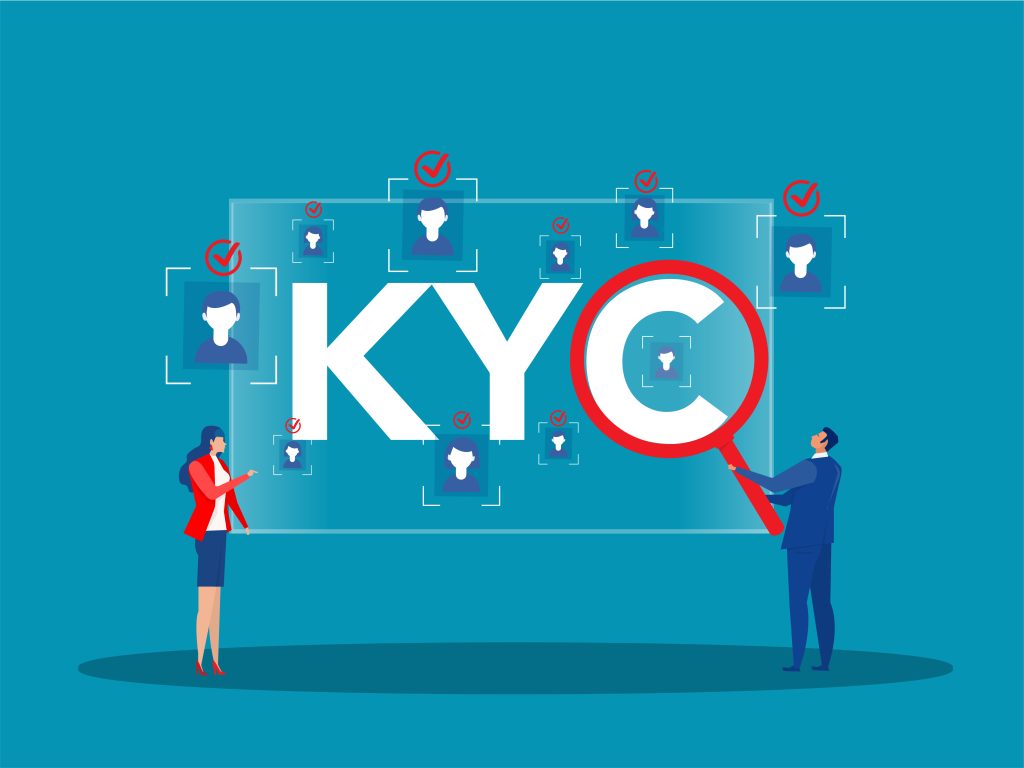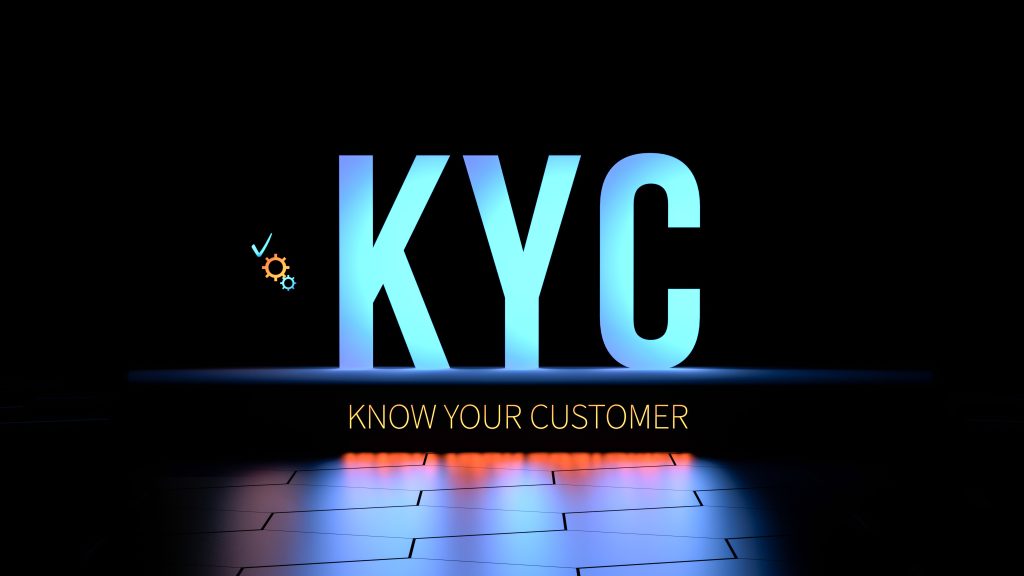Know Your Customer (KYC) is a critical aspect of the financial industry, and its importance extends to the world of crypto. These processes help exchanges comply with Anti-Money Laundering (AML) regulations and maintain a safe trading environment for their users.
What KYC Stands For
In the context of cryptocurrencies, KYC stands for “Know you Customer” and is the process of collecting personal information and documentation from customers, such as a passport or driver’s license, to verify their identity.
This information is then cross-referenced against databases of individuals involved in corruption, sanctions lists, or lists of politically exposed persons to assess the potential risk associated with a customer. By verifying their customers’ identities, exchanges can effectively combat illegal activities like money laundering, terrorist financing, and other forms of financial crime.
The need for KYC in the crypto space is driven by the inherent characteristics of cryptocurrencies, such as their decentralized nature, anonymity, and speed of transactions. These features make digital currencies an attractive option for criminals looking to evade traditional financial systems and their regulatory controls. Consequently, cryptocurrency exchanges become potential targets for criminals seeking to launder illicit funds or finance terrorist activities.
The Importance of “Knowing Your Customers” for Crypto Exchanges


The implementation of KYC procedures is crucial for crypto exchanges to maintain a secure and trustworthy platform for their users. The benefits of KYC for these exchanges can be attributed to several factors:
- Reduced legal risk: By adhering to KYC regulations, crypto exchanges can minimize their exposure to legal disputes and regulatory fines. As a result, they can focus on improving their services, such as increasing conversion rates and streamlining transactions, instead of constantly dealing with changing legal requirements.
- Increased customer trust: Users are more likely to continue using a crypto exchange if they believe the platform is proactive in safeguarding their accounts and personal information. Effective KYC procedures can help build and maintain this trust.
- Enhanced market stability: The volatile and unpredictable nature of the crypto market is often exacerbated by the anonymous transactions associated with digital currencies. Robust KYC processes that include stringent identity verification contribute to the overall stability of the market and foster confidence among investors.
- Reputational damage control: In the event of a data breach or hack, KYC-compliant exchanges are better equipped to prevent fraud and protect their reputation. They can act swiftly to freeze or close accounts linked to criminal activities.
- Reduced risk of scams and money laundering: Compliance with KYC regulations helps exchanges prevent financial crimes such as money laundering, which, in 2021, amounted to $8.6 billion worth of laundered cryptocurrencies.
Trading Crypto Without KYC: The Risks
While it’s possible to trade cryptocurrencies on non-KYC exchanges, doing so comes with a number of risks:
- Security: Non-KYC exchanges often have weaker security measures in place compared to their KYC-compliant counterparts. This makes them more susceptible to hacks, fraud, and other criminal activities.
- Liquidity: These exchanges usually have lower liquidity, as they cater to a smaller customer base. This can make it challenging to find buyers or sellers when trading, which could result in higher fees.
- Fees: Non-KYC exchanges typically charge higher fees to offset the increased risk of fraud and criminal activity associated with their lax identity verification procedures.
- Regulatory risk: By using non-KYC exchanges, traders may inadvertently violate local regulations or expose themselves to potential legal consequences.
To tackle these challenges, regulators worldwide have been progressively introducing and enforcing KYC and AML regulations for cryptocurrency exchanges. These measures help establish trust between exchanges and their users, ensuring that the platforms are not misused for illegal activities.
Is the Know Your Customer Process Safe in Crypto?


As KYC becomes more prevalent in the crypto world, it’s natural to wonder if it’s truly safe. While KYC processes provide benefits like preventing illegal activities and protecting users, there are also potential risks and concerns that users should be aware of.
One of the primary concerns is the security of personal information collected during the KYC process. Exchanges and wallet providers often require sensitive data, such as government-issued IDs, proof of residence, and even selfies. If a platform experiences a data breach, your personal information could be exposed, putting you at risk of identity theft.
To minimize these risks, reputable crypto platforms implement strong security measures to protect users’ data. These can include encryption, multi-factor authentication, and secure storage solutions. However, it’s crucial for users to do their due diligence and choose a trustworthy platform with a proven track record of security.
Another concern is the potential misuse of personal information by the platform itself or by third parties. Some users worry that their data could be sold or shared without their consent. To address this issue, platforms should have clear privacy policies that outline how user data is handled, stored, and shared. Users should review these policies carefully and avoid platforms that do not have transparent and protective policies in place.
Finally, KYC can also be seen as a threat to the anonymity and privacy that many users value in the crypto space. By providing personal information, users lose some of the anonymity that cryptocurrencies offer. However, this trade-off is necessary to meet regulatory requirements and promote a more secure and legitimate crypto ecosystem.
Crypto Wallets and KYC Compliance
When it comes to crypto wallets, KYC compliance plays a critical role in ensuring the safety and security of users’ funds. Here’s an overview of how KYC compliance impacts crypto wallets:
- Custodial wallets: Custodial wallets are provided by third-party services that maintain control over users’ private keys. These wallets usually require KYC compliance because the service provider acts as a custodian of the user’s funds. The KYC process helps to prevent money laundering, terrorism financing, and other illicit activities by verifying the identity of holder. Some popular custodial wallets that require KYC compliance include those offered by crypto exchanges and financial institutions.
- Non-custodial wallets: Non-custodial wallets give users full control over their private keys, meaning that the wallet provider doesn’t have access to the user’s funds. In general, non-custodial wallets do not require KYC compliance, as users are solely responsible for managing their assets. Examples of non-custodial wallets include hardware wallets, software wallets, and paper wallets. You can also try TrustWallet and Brave Wallet as non-custiodial best options out there.
- Privacy-focused wallets: Some wallets focus on providing users with increased privacy and anonymity. These wallets often do not require KYC compliance, as they prioritize user privacy. However, using a privacy-focused wallet without KYC can potentially raise red flags with regulatory authorities, especially if large amounts of funds are being moved.
- Wallet-to-wallet transactions: When transferring funds between wallets, KYC compliance may or may not be required, depending on the wallets involved. If both wallets are associated with KYC-compliant exchanges, then the transaction is likely to be subject to KYC procedures. However, if at least one of the wallets is non-custodial or privacy-focused, KYC might not be required.
Benefits of KYC Compliance in Crypto


KYC compliance offers several benefits for both crypto exchanges and their users, which include:
- Safety and security: KYC compliance ensures that the exchange has implemented strong security measures to protect user information and assets. This helps to reduce the risk of hacks, scams, and other forms of fraud, creating a safer environment.
- Regulatory adherence: Exchanges that follow KYC regulations are less likely to face legal troubles, penalties, or shutdowns from regulatory authorities. This stability is beneficial for users who want to trade and invest without the fear of losing their funds due to an exchange being shut down.
- Improved reputation: Crypto exchanges that comply with KYC regulations are generally seen as more trustworthy by the public. This improved reputation can lead to increased user adoption and a larger customer base. Which in turn results in better liquidity and more efficient markets.
- Attracting institutional investors: Many institutional investors require that crypto exchanges follow strict KYC guidelines before they invest. Compliance with these guidelines can open doors for exchanges to attract significant capital from institutional investors. Further, improving liquidity and market efficiency.
- International cooperation: KYC-compliant exchanges can work with other exchanges and financial institutions around the world more easily, as they are seen as reliable partners. This can lead to increased cross-border cooperation and a more globally interconnected market.
Can You Buy Crypto Without KYC?
Yes, it is possible to buy crypto without KYC, but the options are limited and come with risks. Here are some ways to purchase cryptocurrencies without undergoing KYC procedures:
- Peer-to-peer (P2P) exchanges: P2P exchanges connect buyers and sellers directly, without the need for an intermediary. Some of these platforms allow users to trade without KYC, but be cautious, as the risk of scams is higher.
- Decentralized exchanges (DEXs): DEXs are platforms that facilitate trading between users without the need for a central authority. Some DEXs don’t require KYC like PancakeSwap, but they typically have lower liquidity than a centralized Exchange like Binance and may have higher fees.
- Bitcoin ATMs: Some Bitcoin ATMs don’t require KYC, allowing users to purchase cryptocurrencies with cash. However, these machines often charge high fees and may not be available in all locations.
- Local meetups: Crypto enthusiasts sometimes organize local meetups where they can trade cryptocurrencies in person. While this option can bypass KYC, it also carries the risk of scams and personal safety concerns.
While these methods allow you to buy crypto without KYC, it’s essential to weigh the risks before proceeding. In most cases, it’s safer and more practical to use a KYC-compliant exchange.
Striking the Right Balance
As we reach the end of our discussion on the increasing prevalence of KYC in the crypto world, it is crucial to weigh both the benefits and potential drawbacks of these processes. While KYC initiatives are instrumental in combating illegal activities and safeguarding users, it is important to stay vigilant about the possible risks and privacy concerns that may arise.
This involves implementing robust KYC procedures that can effectively deter criminal activities without compromising individual privacy rights. By fostering transparent communication and a commitment to evolving industry best practices, we can ensure a safer and more privacy-conscious crypto landscape for all users.









